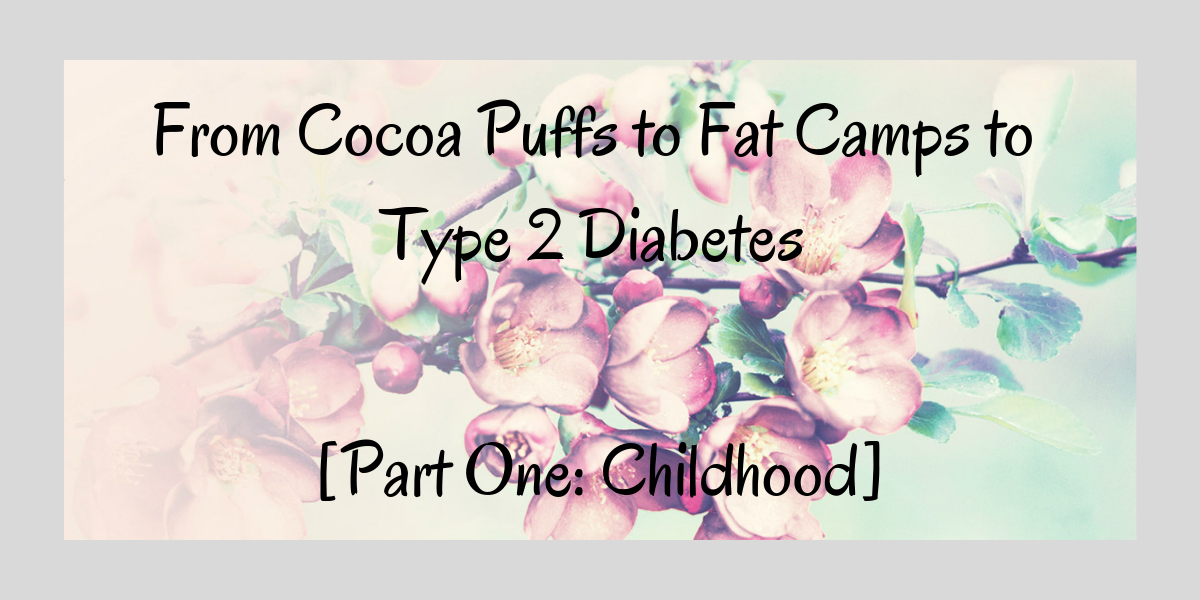Now that I’ve caught your attention with such a telling title, let’s start at the beginning of my tale. As a kid growing up in Los Angeles in the early 70s, raised by parents who didn’t know much about nutrition, Cocoa Puffs for breakfast was a reality, along with Trix and Captain Crunch in a bowl of low-fat milk. The fantastic cartoonish boxes amaze me to this day; quite the alluring artistry.
As of 2003, the ingredients in Cocoa Puffs included whole grain corn, sugar, corn syrup, cornmeal, canola and or rice bran oil, and cocoa solids processed with alkali. This amounts to a high-glycemic, overly-processed, inflammatory Nightmare on Domingo Road—the street where we lived.
Hook, Line, and Sinker
It’s important to note, I was hooked by age eight. By “hooked,” I mean addicted to flour and sugar. What comes first: physiology or mindset? Does the body crave the substance first, or does the mind lead with thoughts and longing? I believe it doesn’t much matter. I believe the time we spend deciphering “the chicken or the egg,” keeps us in an analytical, intellectual standstill. It’s time to move forward.
As an introverted child, my world was greatly internal. This means I learned to garnish pleasure by myself. I loved music. Picture this scene: lights off in my room upstairs, mom’s strobe light flashing bright white, music playing loudly on the record player, and me circling the room, singing with an object I used as a makeshift microphone. The song? Ironically… “Sugar Sugar,” by The Archies. It goes a little something like this:
“Sugar, ah honey honey
You are my candy girl
And you got me wanting you”
Sugar gave me pleasure. My body knew it; my soul knew it. At a young age, I did not know of course, the pleasure was temporary and would lead to “a monkey on my back,” decades of secrecy, chasing the high, and chronic illness.
Not Your Average Summer Camp
They’re not called “fat” camps, but that’s certainly the slang. I’m pretty sure they’re referred to as “fitness” camps, and most recently, there’s been a hint of rebranding geared toward lifestyle and health.
I think I went to summer fat camp three times, although I only recall two locations: San Diego State University and Westmont College in Montecito, CA. I shared dorms rooms with other girls and pre-teens ready to take on the world… or at least lose a bit of weight. How old was I? I’m guessing eleven to thirteen.
I don’t know if I was excited or reluctant to attend camp; I do know it was my parents’ influence and actions that got me there. I feel no blame toward them, as I know their intentions came from a caring place. So what is a young, psychological mind to do in this surreal scenario? Focus on losing weight, of course, and navigate the unspoken message that for all of us there, we weren’t fabulous, just the way we were.
Let’s be clear: The camp experience wasn’t about “body-love” or acceptance; it was about change and transformation. There were kids much younger than me attending, perhaps as young as eight years old.
Highlights of camp:
- Met friends “Blaze” and “Brazil”
- Became a vegetarian
- Participated in “Secret Camper” and gave gifts to Cheri Turner, camp counselor
- Kicked in the college candy vending machine with other rebel-campers
- Lost weight
Lowlights of camp:
- Discovered through camp program assessment, I saw myself “thinner” than I actually was—ouch
- Got kicked out of camp for smoking pot (dad was silent the whole ride home)
- Blueprinted the painful message that my body wasn’t beautifully-enough
- Became a vegetarian
In the Image of Hollywood
On a small card in my baby book, my birth announcement to the world read, “A Steinberger Production.” Apparently from my first breath, I had an agenda to live up to. My father was in the entertainment business so it’s easy to connect the dots, and it was a cute, creative broadcast for sure. In retrospect, however, I wonder about the connection between that bulletin and what was yet to come…

Thin is BIG in Los Angeles. To the mainstream, it’s a status as compelling as material wealth and fame. Southern California is a special place where folks go the distance to achieve “skinny” through whatever means it takes. Diet-culture loomed large when I was a kid in the 70s, and it still does today; body image holds A LOT of weight.
Enter food restriction: From the collective culture to the surrounding community to internal family values, skinny-ism found its way into my home. It reared its ugly head by way of parental restriction of certain foods, particularly desserts and chips. It’s important to note, however, the sweet treats and snack foods were kept in the house; I was just allocated to limited consumption. You might guess what happened next.
Like any young, creative nonconformist might do… I rebelled against skinny minny, heteronormative depictions of feminine expression, and of course, food-restriction.
My heart and inner-wisdom were in tact. My sense of knowing there was something deeper than materialism and “show” was spot-on. The problem was that insecurity and low self-esteem developed along the way, and as a means of coping, compulsive eating and food-secrecy became my friend and source of connection.
To be continued in part two…

